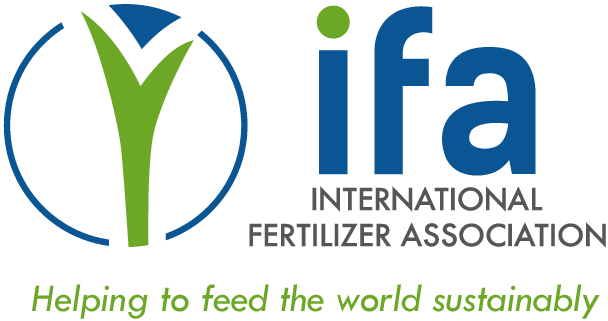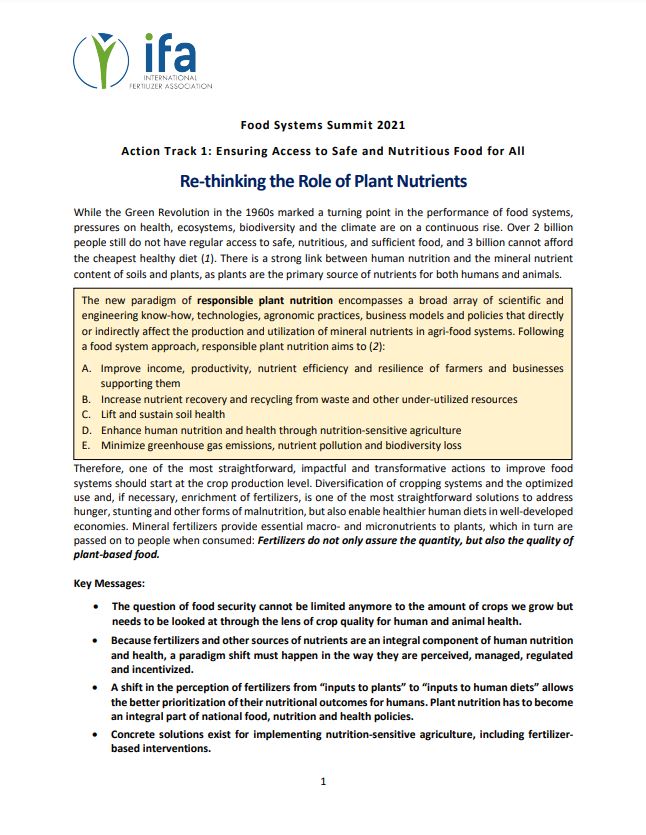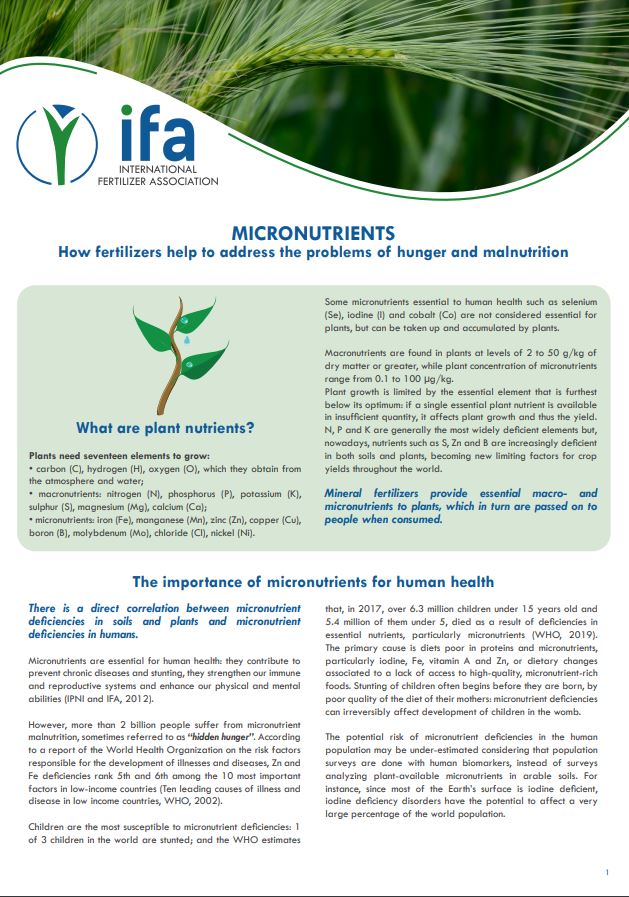Human Nutrition
about fertilizers
How fertilizers support human nutrition.
Fertilizers are commonly known for helping plants grow, but their role goes beyond agriculture. They also play an important part in supporting human nutrition. When used appropriately, fertilizers help ensure that food crops and animal feed provide the energy needed and contain essential nutrients like protein, fiber, vitamins, and minerals that people need to stay healthy.
Nutrient flow from soil to people.
Plants require many mineral elements – or nutrients – to grow and produce nutritious food for consumption by humans and animals.
Many of these nutrients come from the soil through fertilizers – both mineral and organic – as well as from natural processes such as biological nitrogen fixation. When people consume plants, or animals raised on those plants, they indirectly benefit from these nutrients.
This transfer is vital in addressing both overt and hidden forms of malnutrition (fig.1).
Fig. 1 – At least nineteen different mineral elements (plus C, H and O) are required for optimal plant growth and to support the nutritional quality of food products harvested for human consumption (Image from SPRPN Issue Brief: Plant nutrients are essential for the alleviation of chronic and hidden hunger).

From yield focus to nutritional focus.
Historically, fertilizer strategies have aimed to increase crop yields, emphasizing macronutrients like nitrogen (N), phosphorus (P), potassium (K), and sulfur (S). However, this yield-first approach has sometimes overlooked the nutritional value of the food produced.
As global food production concentrates on a limited number of crop species – many of which are low in micronutrients such as zinc, iron, and selenium – soil micronutrient depletion becomes a concern. In regions like sub-Saharan Africa, poor soil and crop health is linked to serious outcomes like child stunting, malnutrition, and increased mortality.
A widespread nutrition deficiency.
According to the United Nations, about two billion people globally suffer from micronutrient deficiencies. Common deficiencies include iron, zinc, selenium, and iodine, each of which affects human health, animal health, and even plant development. For instance:
- Many wheat-growing regions have zinc-deficient soils.
- Iodine is lacking in most of the world’s soils.
- Livestock grazing on nutrient-poor pastures may produce less nutritious meat, milk, or eggs and may become more susceptible to diseases.
Toward nutrition-sensitive agriculture.
Modern food systems are complex and global, and diets are evolving. Addressing malnutrition requires a shift toward nutrition-sensitive agriculture – farming that prioritizes both the quantity and quality of food. This includes:
- Promoting diverse diets.
- Biofortifying crops (enhancing them with vitamins or minerals); this can be done through breeding and/or targeted enrichment of fertilizers with micronutrients.
- Collaborating across sectors such as health, education, food and agriculture to ensure food is both available and nutritious.
Critically, these efforts must start with the soil. If the soil lacks nutrients, crops and livestock will too.
What can the fertilizer industry do?
The fertilizer industry has an opportunity and can support better nutrition by:
- Supporting sustainable farming practices that increase the supply of nutrient-rich crops.
- Increasing the yield of staple crops and thus free part of the cropland to diversify crops, including more nutrient-rich crops such as pulses, fruits and vegetables.
- Calling for the targeted enrichment of staple food crops (like rice, wheat, or maize) with key micronutrients in places that need it most.
- Improving animal health and productivity through better fertilization of feed crops and pastures.
- Aligning farming policies with public health goals to include nutritional outcomes into agricultural extension education and advisory.

Smarter fertilizer use for better health.
Using fertilizers strategically, not just to boost yield, but to enhance nutrient content, can significantly improve food quality. For example, adding zinc to fertilizers can increase both crop yield and the zinc content of crops. A balanced supply of nutrients also helps plants tolerate environmental stresses like drought and diseases.
Combining mineral and organic fertilizers with good farming practices – such as crop rotation, soil care, and selecting the right crop varieties – can lead to better food production and better health outcomes worldwide.


